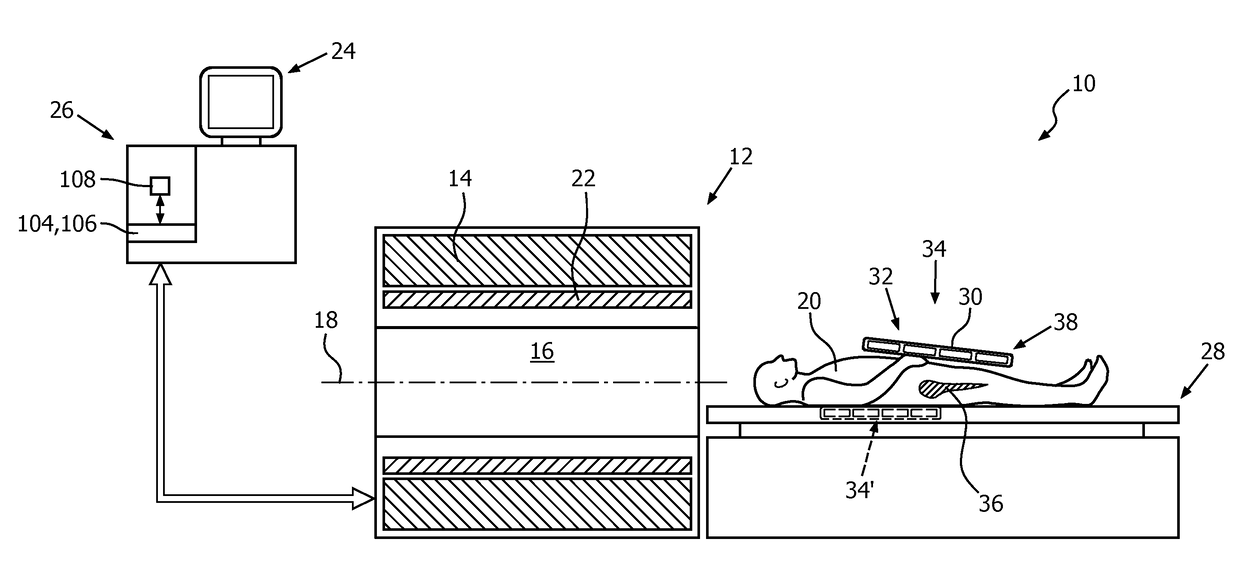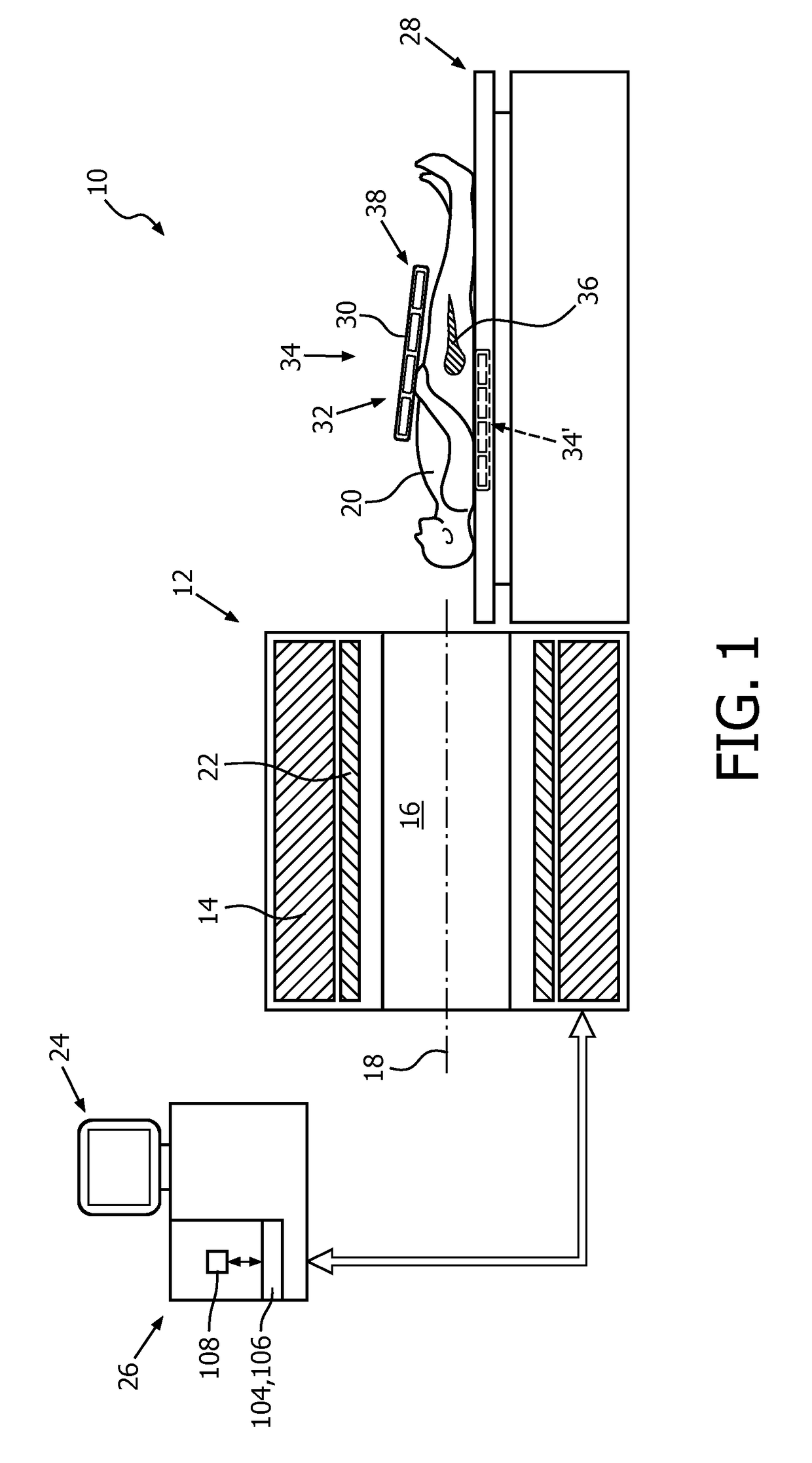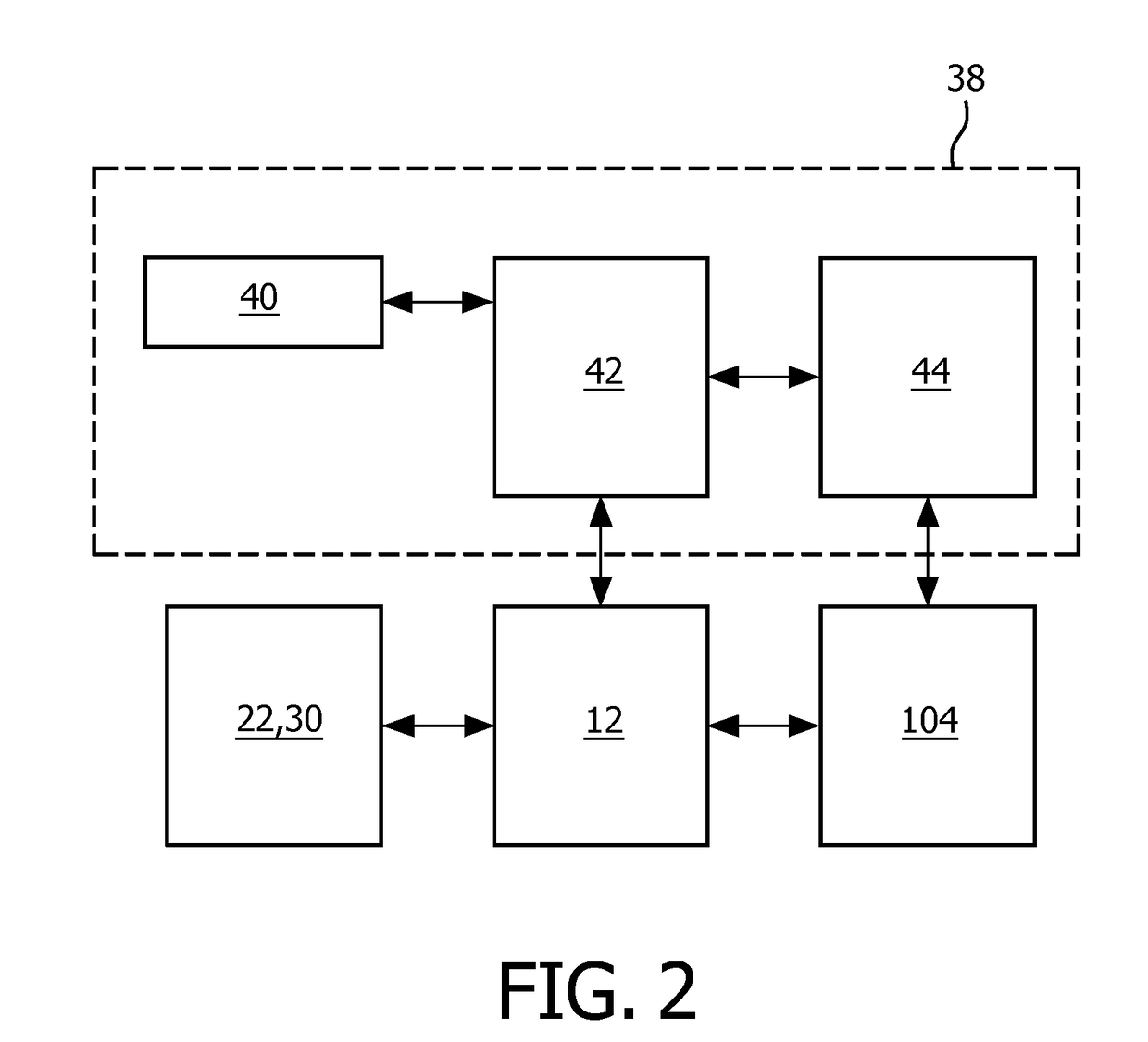Method and detecting unit for detecting metal implants and selecting magnetic resonance pulse sequences for efficient MRI workflow
a detection unit and pulse sequence technology, applied in the field of magnetic resonance imaging system, can solve the problems of image artifacts, magnetic resonance imaging near metal is typically compromised, and implants are known to pose problems that require careful consideration, and achieve the effect of supporting diagnosis of complications
- Summary
- Abstract
- Description
- Claims
- Application Information
AI Technical Summary
Benefits of technology
Problems solved by technology
Method used
Image
Examples
Embodiment Construction
[0076]FIG. 1 shows a schematic illustration of an embodiment of a magnetic resonance imaging system 10 in accordance with the invention. The magnetic resonance imaging system 10 is configured for acquiring magnetic resonance images from at least a portion of a subject of interest 20, usually a patient. The magnetic resonance imaging system 10 comprises a scanner unit 12 having a main magnet 14. The main magnet 14 has a central bore that provides an examination space 16 around a center axis 18 for the subject of interest 20 to be positioned within, and is further configured for generating a static magnetic field B0 at least in the examination space 16. The static magnetic field B0 defines an axial direction usually denoted as the direction of the z-axis and aligned in parallel to the center axis 18 of the examination space 16.
[0077]A customary patient table 28 for supporting the subject of interest 20 includes a table support and a table top that is attached to the table support in a...
PUM
 Login to View More
Login to View More Abstract
Description
Claims
Application Information
 Login to View More
Login to View More - R&D
- Intellectual Property
- Life Sciences
- Materials
- Tech Scout
- Unparalleled Data Quality
- Higher Quality Content
- 60% Fewer Hallucinations
Browse by: Latest US Patents, China's latest patents, Technical Efficacy Thesaurus, Application Domain, Technology Topic, Popular Technical Reports.
© 2025 PatSnap. All rights reserved.Legal|Privacy policy|Modern Slavery Act Transparency Statement|Sitemap|About US| Contact US: help@patsnap.com



